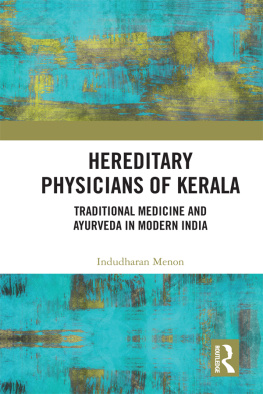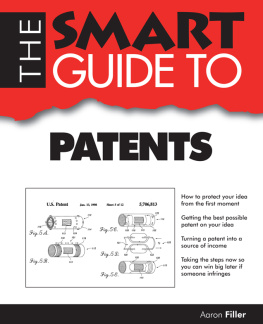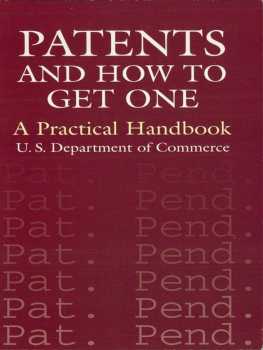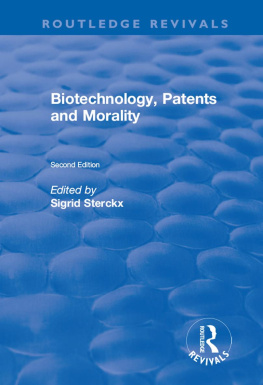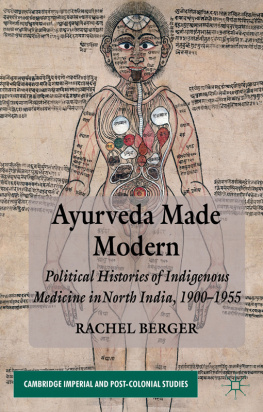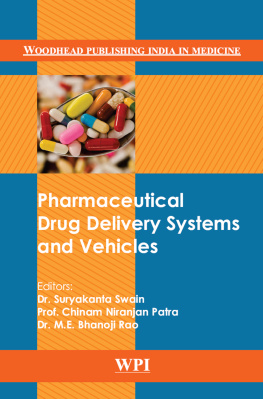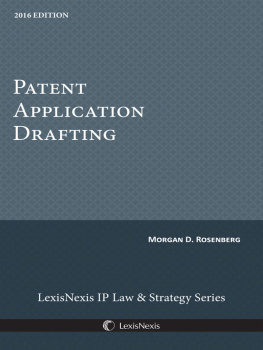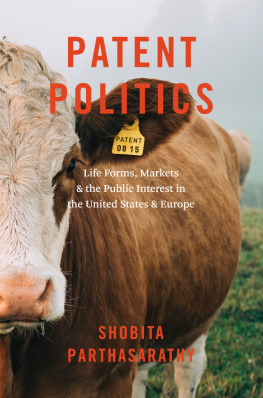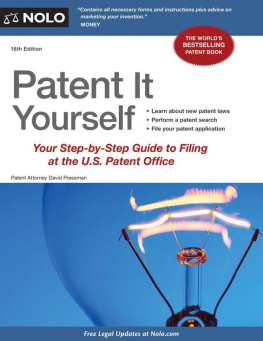I NDIA AND THE P ATENT W ARS
Pharmaceuticals in the New Intellectual Property Regime
M URPHY H ALLIBURTON
ILR P RESS
AN IMPRINT OF
C ORNELL U NIVERSITY P RESS
I THACA AND L ONDON
This book is dedicated to Amy, Luca, and Sophie.
C ONTENTS
A CKNOWLEDGMENTS
I would like to thank the many individuals and organizations whose assistance enabled this long-term research project to become a book. This work is the product of bits and pieces of investigation and writing that started around 2003 and continued through 2015. I am especially grateful to representatives from India- and United Statesbased biomedical pharmaceutical companies who took the time to meet with me and discuss their perspectives on patent controversies and drug access issues and to the practitioners of ayurvedic medicine and representatives of ayurvedic pharmaceutical companies who offered their views on the same topics and shared their concerns about biopiracy. The many conversations I have had with Krishna Ravi Srinivas and my meeting with his colleague T. C. James, both of Research and Information System for Developing Countries, New Delhi, were important to shaping my ideas, and I am grateful to my long-term friend and colleague Dr. K. Gireesh for introducing me to informants in Kerala and for his insight and camaraderie during my stays in Thiruvananthapuram.
This book benefited from several opportunities I had to present my research on patent controversies, starting in 2004 with a colloquium talk at the City University of New York Graduate Center at the invitation of my colleagues in the Department of Anthropology. My analysis of these issues developed further through subsequent presentations, including a colloquium at the Department of Sociology and Anthropology at Lehigh University in 2011, arranged by Bruce Whitehouse, and a South Asia Studies Seminar talk at the University of Iowa in 2012, at the invitation of Fred Smith. I also benefited greatly from speaking about these issues with Dr. Mala Ramanathan and her graduate students at the Achutha Menon Centre for Health Science Studies in Thiruvananthapuram, India, in 2014.
Research for this book was supported in part by a Professional Staff CongressCUNY Research Award to support travel to India in 2004 and 2005. The book also draws on fieldwork conducted in Kerala, India, in the 1990s that was supported by grants from the Wenner Gren Foundation and the National Science Foundation.
I am grateful to the editors and staff at Cornell University Press for their interest, support, and work on this project. Frances Benson and Sioban Nelsons editorial insight and support was invaluable, and I am especially indebted to Suzanne Gordon, who carefully read and edited several versions of this manuscript, challenging me to move outside my comfort zone of academic discourse and develop a voice that can speak to a popular audience as well as to specialists. I believe I have taken at least some steps toward this goal because of her efforts.
Portions of this work appeared in earlier articles I wrote on the new global patent regime. Some of the discussion of ayurvedic practitioners resistance to the new patent regime in chapter 3 appeared in my article Resistance or Inaction? Protecting Ayurvedic Medical Knowledge and Problems of Agency, American Ethnologist 38(1): 85100, 2011. Examples in chapter 2 of activist efforts to mitigate the effects of the patent regime appeared in Drug Resistance, Patent Resistance: Indian Pharmaceuticals and the Impact of a New Patent Regime, Global Public Health 4(6): 515527, 2009, and part of the discussion of the emergence of the concept of intellectual property in chapter 1 appeared in my Introduction (Special IssueIntangible Property at the Periphery: Expanding Enclosure in the 21st Century), International Journal of Cultural Property 19(3): 233249, 2012.
N OTE ON N AMES OF M EDICATIONS
Throughout this book, the brand names of medicines are written with an initial capital (for example, Viread) and generic names are written in lower case (for example, tenofovir). The registered trademark symbol is not used next to brand names in this text, but all brand names mentioned are registered trademarks.
I NTRODUCTION
We live in a world where more and more ideas and experiences are becoming forms of property. Intellectual property laws have expanded throughout the globe, and a broad range of creations and realms of human experience have been cordoned off, with legal fences being put around the sharing of innovations and cultural practices. Yoga routines, genetically engineered mice, French gastronomy, and the cultural practices of Afro-Brazilians have all been subject to ownership claims under a new global regime of intellectual property protections. We are also seeing extensions of laws that protect more familiar forms of intellectual property. Copyright laws now keep vast collections of film and literature out of the public realm, while new patent laws make it harder both to share medical knowledge and to produce generic versions of medicines. United States court decisions, multinational corporations, and the World Trade Organization (WTO) are major contributors to this new regime in which knowledge that was once considered part of the public domain has become the property of individuals, corporations, and communities.
In this new property regime that spans the globe from Indonesia to Brazil to the United States, India has been the site of some of the most fraught battles over the ownership of pharmaceutical knowledge. A center of medical knowledge for centuries, India is home to several non-Western medical systems that are taught in colleges and practiced in hospitals, and the country provides many of the worlds Western, biomedical drugs through its growing pharmaceutical sector.
Over the last ten years, as I spoke to people in the United States about the research I had been doing on controversies over patents in India, some would make comments about Indian companies stealing products from US companies or violating patents by producing copies of medications that were patented elsewhere. What most people who knew a little about this controversy did not know was that nothing illegal was going on. Before the WTO implemented its global patent rules, each country created its own patent laws tailored to its own priorities and concerns. Indias pre-WTO patent law had a provision stating that, for medications, only the process for making the medication, but not the medical product itself, could be patented . Thus, different companies could make the same medicine if they could find a different way to manufacture the drug, and, until recently, Indian companies were free to create their own versions of drugs that were patented elsewhere, whether antidepressants, treatments for AIDS, medications for erectile dysfunction, or the various statins, such as Pfizers Lipitor, that have been making huge profits for multinational drug companies.
The Indian government included this special product patent exception back in 1970 because it wanted to avoid monopoly control of medicines. Medications, because they could save a life or cure a disease, were not like other kinds of inventions in the minds of Indian lawmakers. In the United States, on the other hand, medicines have long been protected by product patents, and laws have conformed more closely to the interests of pharmaceutical corporations, allowing what some critics today consider to be frivolous patents on slight modifications of drugs, known as me-too drugs, that offer no increase in efficacy. Over the course of the 1990s and 2000s, the WTO required member nations to change their laws and conform to a single, United Statesstyle intellectual property regime. In other words, India had to make its patent laws more like those of the United States because of the WTOs mandate. The deadline India and other developing countries were given was 2005, and India met this requirement when it passed its 2005 Patents (Amendment) Act.


